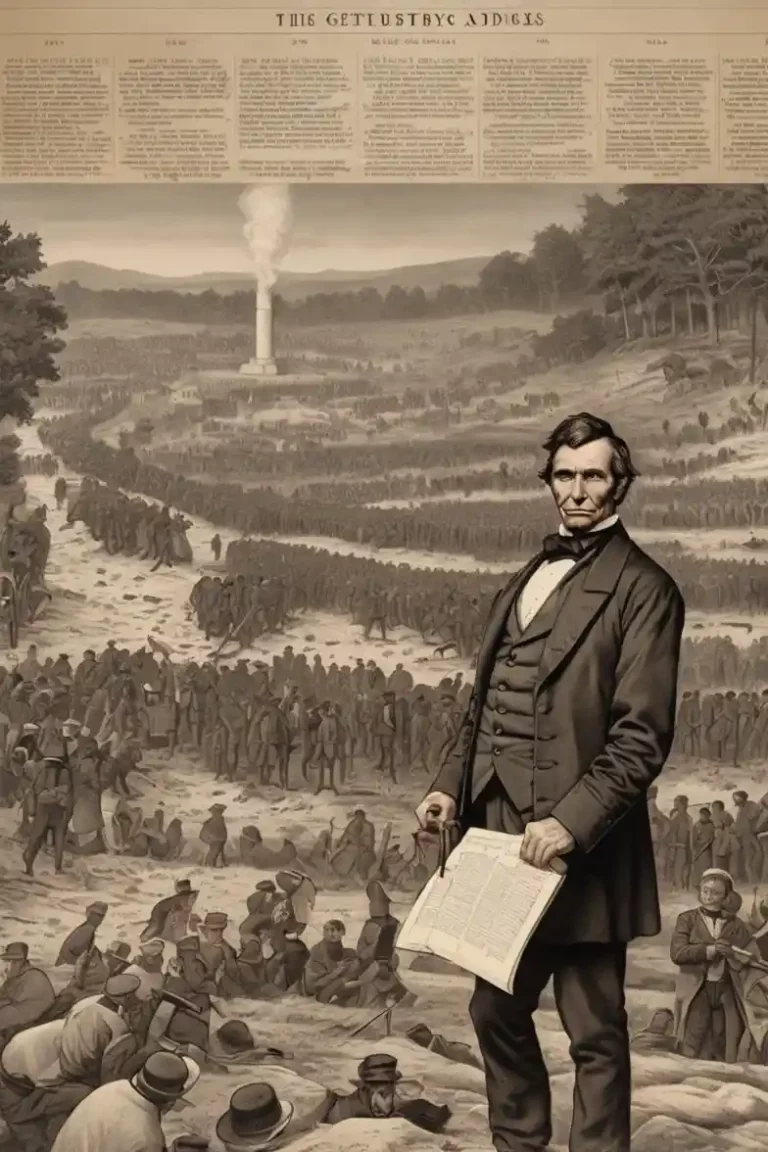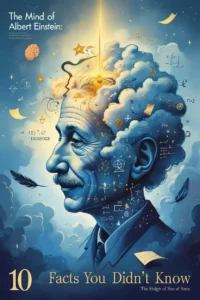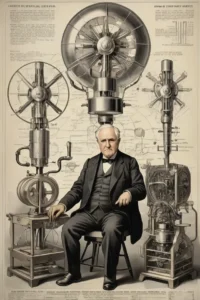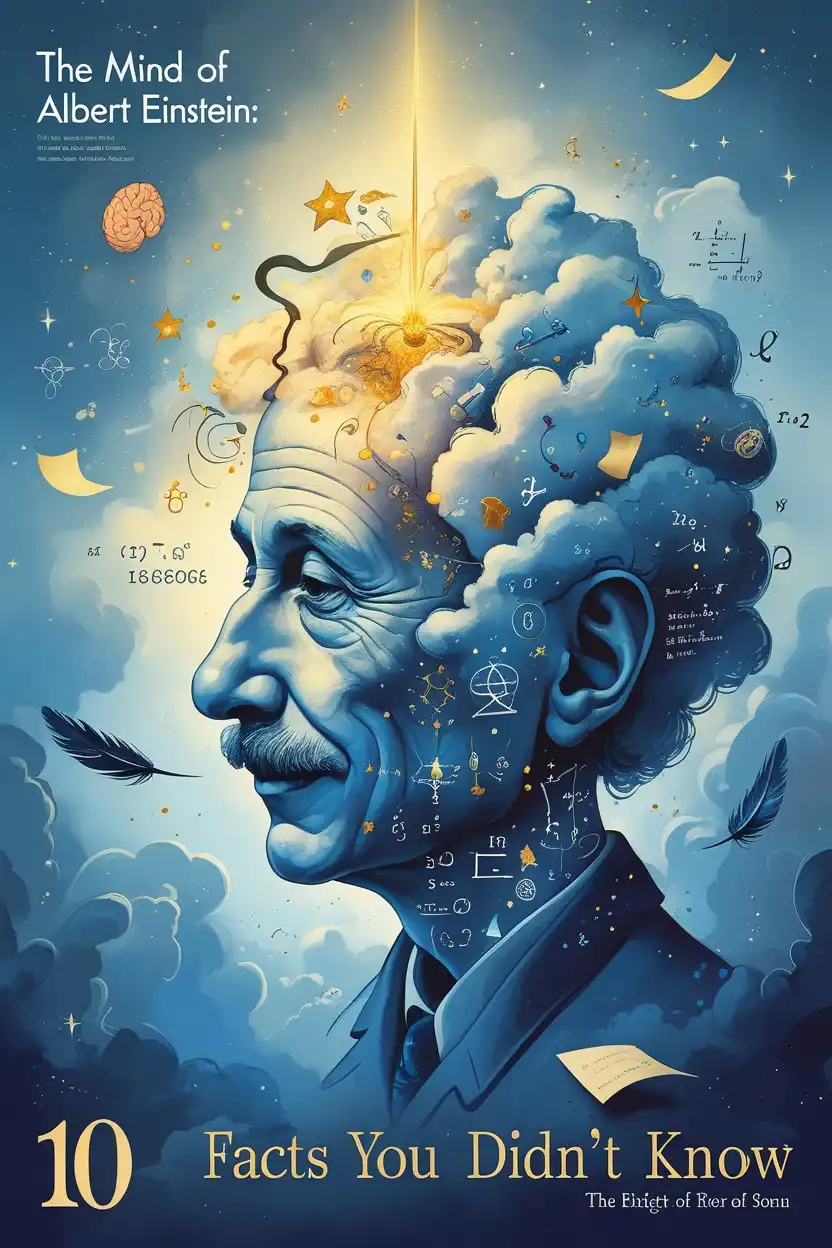The Gettysburg Address, delivered by President Abraham Lincoln on November 19, 1863, stands as one of the most iconic and influential speeches in American history. In just 272 words, Lincoln managed to encapsulate the essence of the nation’s founding principles, the sacrifices of war, and the enduring pursuit of equality and freedom. This brief yet profound speech has resonated through generations, reshaping the way Americans view democracy, unity, and their collective identity.
The Context: A Nation Divided
The Gettysburg Address was delivered during the height of the American Civil War, a brutal conflict that pitted the Union against the Confederacy over issues including slavery, states’ rights, and national unity. By the time Lincoln spoke at Gettysburg, over two years of war had left the nation fractured and grieving. The Battle of Gettysburg, fought in July 1863, was one of the bloodiest battles in American history, with tens of thousands of soldiers killed, wounded, or missing.
The speech was given at the dedication of the Soldiers’ National Cemetery in Gettysburg, Pennsylvania. Lincoln was not the main speaker that day—Edward Everett, a renowned orator, delivered a two-hour address before Lincoln took the podium. Yet it was Lincoln’s brief remarks that would leave an indelible mark on history.
The Speech: A Testament to Unity and Equality
Lincoln began by referencing the nation’s founding, evoking the Declaration of Independence with its promise that “all men are created equal.” In doing so, he reminded his audience of the ideals upon which the United States was built and emphasized that these principles were worth preserving—even at great cost.
He then honored the soldiers who had given their lives at Gettysburg, stating that their sacrifice had consecrated the battlefield far more than any words could. Lincoln used this moment to shift the focus from mourning to resolve. He urged the living to dedicate themselves to “the unfinished work” of those who had fought and died—to ensure that “government of the people, by the people, for the people, shall not perish from the earth.”
Why the Gettysburg Address Matters
The Gettysburg Address is more than just a speech; it is a redefinition of American ideals. At a time when the nation was deeply divided, Lincoln’s words provided a vision of unity and purpose. He reframed the Civil War as not just a struggle for the Union’s survival but as a fight for the principles of equality and democracy.
A Shift in National Identity
Before the Civil War, Americans often referred to their country in plural terms—”the United States are.” After Lincoln’s address and the war’s conclusion, the nation began to be seen as a singular entity—”the United States is.” This subtle yet profound shift in language reflected a growing sense of national unity.
A Call to Action
Lincoln’s speech also served as a call to action for future generations. By framing the war as a test of whether a nation “conceived in Liberty” could endure, he challenged Americans to uphold and expand upon those founding principles. His words continue to inspire movements for civil rights and equality to this day.
Lessons from Lincoln’s Words
The Gettysburg Address offers timeless lessons that remain relevant in contemporary society:
- The Power of Brevity: In an age of long-winded rhetoric, Lincoln demonstrated that profound ideas can be conveyed succinctly. His ability to distill complex issues into a few sentences is a testament to his clarity of thought.
- Unity in Adversity: Lincoln’s emphasis on national unity reminds us that even in times of deep division, shared values can serve as a foundation for reconciliation.
- The Pursuit of Equality: The address reaffirms the importance of striving toward equality and justice—principles that require ongoing effort and commitment.
FAQs About The Gettysburg Address
Q: Why is the Gettysburg Address so famous?
A: The Gettysburg Address is famous because it eloquently redefined American values during a critical moment in history. It emphasized equality, unity, and democracy while honoring those who sacrificed their lives for these ideals.
Q: How long is the Gettysburg Address?
A: The speech is only 272 words long and took about two minutes to deliver.
Q: What was the main purpose of the Gettysburg Address?
A: The main purpose was to honor fallen soldiers and inspire Americans to continue fighting for the principles of freedom, equality, and democracy.
Q: What does “government of the people, by the people, for the people” mean?
A: This phrase underscores the idea that government should serve its citizens and be accountable to them—a cornerstone of democracy.
Q: How did people react to the Gettysburg Address at the time?
A: Initial reactions were mixed. Some praised its eloquence and depth, while others dismissed it as too brief or simplistic. Over time, however, it gained recognition as one of history’s greatest speeches.
Conclusion
The Gettysburg Address remains a cornerstone of American political thought and rhetoric. Its enduring legacy lies in its ability to inspire hope, unity, and a commitment to fundamental principles. As we reflect on Lincoln’s words today, we are reminded of our shared responsibility to uphold democracy and strive toward a more perfect union. In just two minutes, Abraham Lincoln reshaped a nation—and his message continues to resonate across time.





